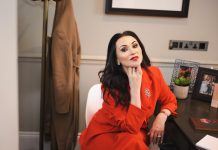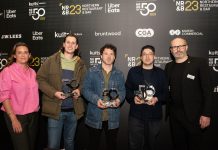Science needs to have a higher cultural and political profile, if the UK is to really capitalise on its world leading position according to Professor Brian Cox.
TV Star and newly appointed Professor for Public Engagement in Science at The University of Manchester, Professor Cox compares the fact that all our political parties agree that science will be a key driver of economic growth in the coming decades to the fact that we invest a smaller percentage of our GDP in research than many of our competitor economies.
He believes that one factor behind this is that science is not held in the same high regard culturally as it is in many countries, particularly in developing economies such as India and China.
We are fortunate to have in place all the components to make Britain the best place in the world to do science; world-leading research and teaching universities, national laboratories and facilities and powerful and prestigious institutions like the Royal Society. It is strange, therefore, that we invest significantly less in scientific research than our major competitors; the UK invests 1.8% of GDP; USA 2.7%; Germany 2.8%; South Korea 4%. Part of the reason is that science is not held in the same high regard culturally as it is internationally, and particularly in developing economies such as India and China. China doubled its investment in science between 2000 and 2012 while the UK reduced the proportion of its GDP spent over that time.
The UK currently has 1% of the world’s population, 3% of the investment in science and produces 14% of the highest impact research papers.
One aspect Professor Cox’s new post as a Royal Society Professor, will be looking at how the Royal Society can help to provide inspiration for teachers and students and to give them a flavour of the fun that can be had bringing science to life.
As part of the programme he will be looking to work with partners from across science and with organisations such as the BBC.
Paul Nurse, President of the Royal Society said: “The UK is very good at science but it is seen as something difficult and perhaps removed from ordinary people. We have high levels of trust and surveys show that scientists as seen as creative, interesting and open-minded people but how many of us encourage our children to be a scientist?







